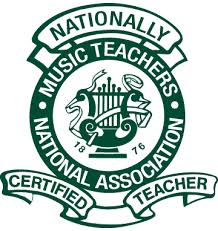Mukilteo Music LLC
What is the right age to start piano lessons?

(She might be a bit young)
This depends a great deal on your musical goals, availability to help your child practice, and the maturity of your child. Younger children will need to have a parent with them during practice sessions to help them with proper technique, notes and rhythm. (You don't have to have any musical background to do this: see below for further discussion).
Children need to be able to concentrate for 10-15 minutes at a time, although activities can be more game-based and varied for preschool age. Older children may be more independent and progress at a quicker rate. A good rule of thumb is first grade, but research also shows the benefits of starting earlier. I am comfortable giving private lessons to children as young as four years of age.
Even if you feel your child isn't ready for private lessons, early musical exposure can give your child a wonderful foundation! Starting when they are babies, you can sing, do finger plays and rhymes, dance with them in your arms, bounce and sway. As they become toddlers and preschoolers, help them keep time to their favorite songs with a pot and a spoon. March, sway, listen to children's CDs and learn the songs together. Turn on the classical music radio station while you drive.This will expose your child to the concepts of steady rhythm, pitch, aural awareness, and musical expression that will prepare them for future study.
Our "Kiddy Keys" and "Carnival of the Animals" classes are a great way to build a musical foundation whether or not you decide to pursue formal music training in the future.
How can I help my child if I don't have any musical background?
A musical background is not necessary to be an effective coach for your child! I have incorporated many of the principles of the Suzuki method, that I have learned through watching my daughters take violin and cello lessons with Suzuki teachers and observing Suzuki piano teachers. In the Suzuki method, parents learn right alongside their child. They are taught how to coach their children's practice sessions. For young children, you can help them with their posture, technique, notes and rhythm, as you learn along with them. For older children, you can monitor to help them practice consistently, meet their practice goals, and complete written assignments. You can also help them complete listening assignments daily. As they listen to their pieces, they will learn how to self-correct and play expressively.
Why don't you offer thirty minute lessons for older children?
When I taught 30 minute lessons, I was frustrated by my inability to spend the time necessary to work on all of the components of a well-rounded musical education. I have found that longer lessons allow for a more comprehensive curriculum which includes technique, repertoire, note-reading, rhythm, improvisation, ear training, and sight reading. I do offer thirty minute lessons for 5-6 year old beginners who haven't yet developed a longer attention span but will move to 45 minute lessons as soon as they are ready.
